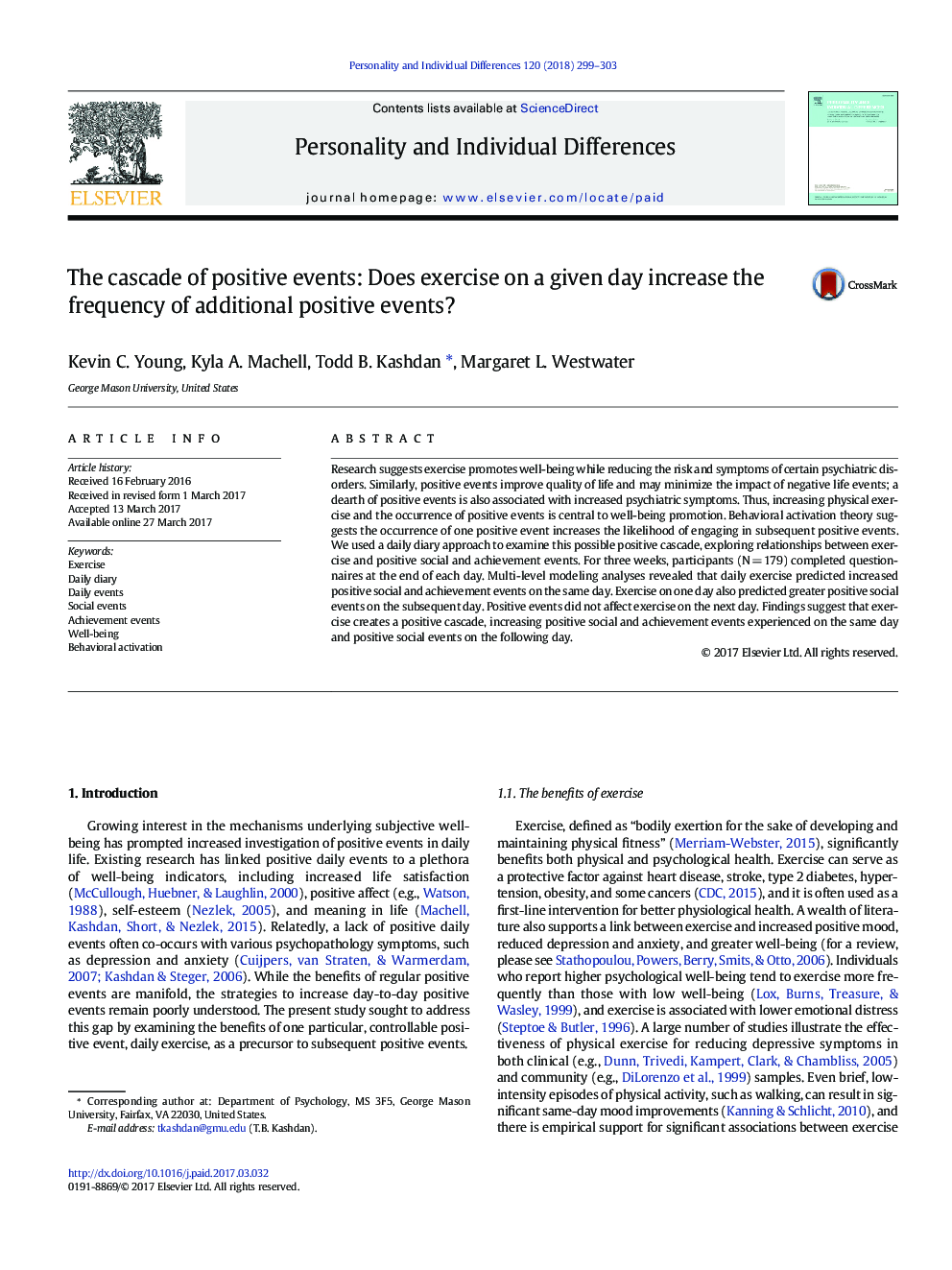| Article ID | Journal | Published Year | Pages | File Type |
|---|---|---|---|---|
| 5035553 | Personality and Individual Differences | 2018 | 5 Pages |
â¢Exercise augments the frequency and importance of same-day positive events.â¢Exercise predicts increased frequency and value of next-day positive social events.â¢Results support the inclusion of exercise within well-being enhancing interventions.
Research suggests exercise promotes well-being while reducing the risk and symptoms of certain psychiatric disorders. Similarly, positive events improve quality of life and may minimize the impact of negative life events; a dearth of positive events is also associated with increased psychiatric symptoms. Thus, increasing physical exercise and the occurrence of positive events is central to well-being promotion. Behavioral activation theory suggests the occurrence of one positive event increases the likelihood of engaging in subsequent positive events. We used a daily diary approach to examine this possible positive cascade, exploring relationships between exercise and positive social and achievement events. For three weeks, participants (NÂ =Â 179) completed questionnaires at the end of each day. Multi-level modeling analyses revealed that daily exercise predicted increased positive social and achievement events on the same day. Exercise on one day also predicted greater positive social events on the subsequent day. Positive events did not affect exercise on the next day. Findings suggest that exercise creates a positive cascade, increasing positive social and achievement events experienced on the same day and positive social events on the following day.
